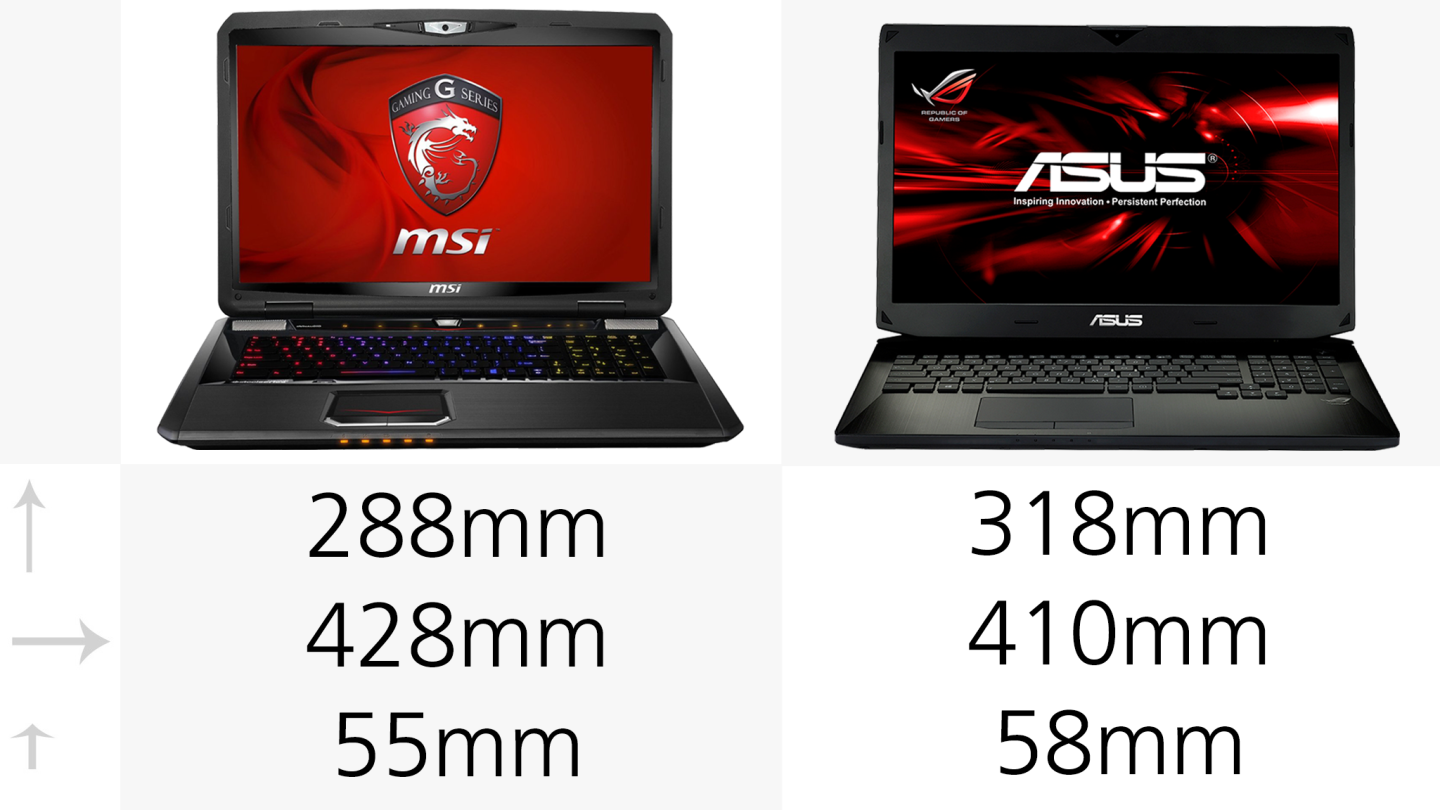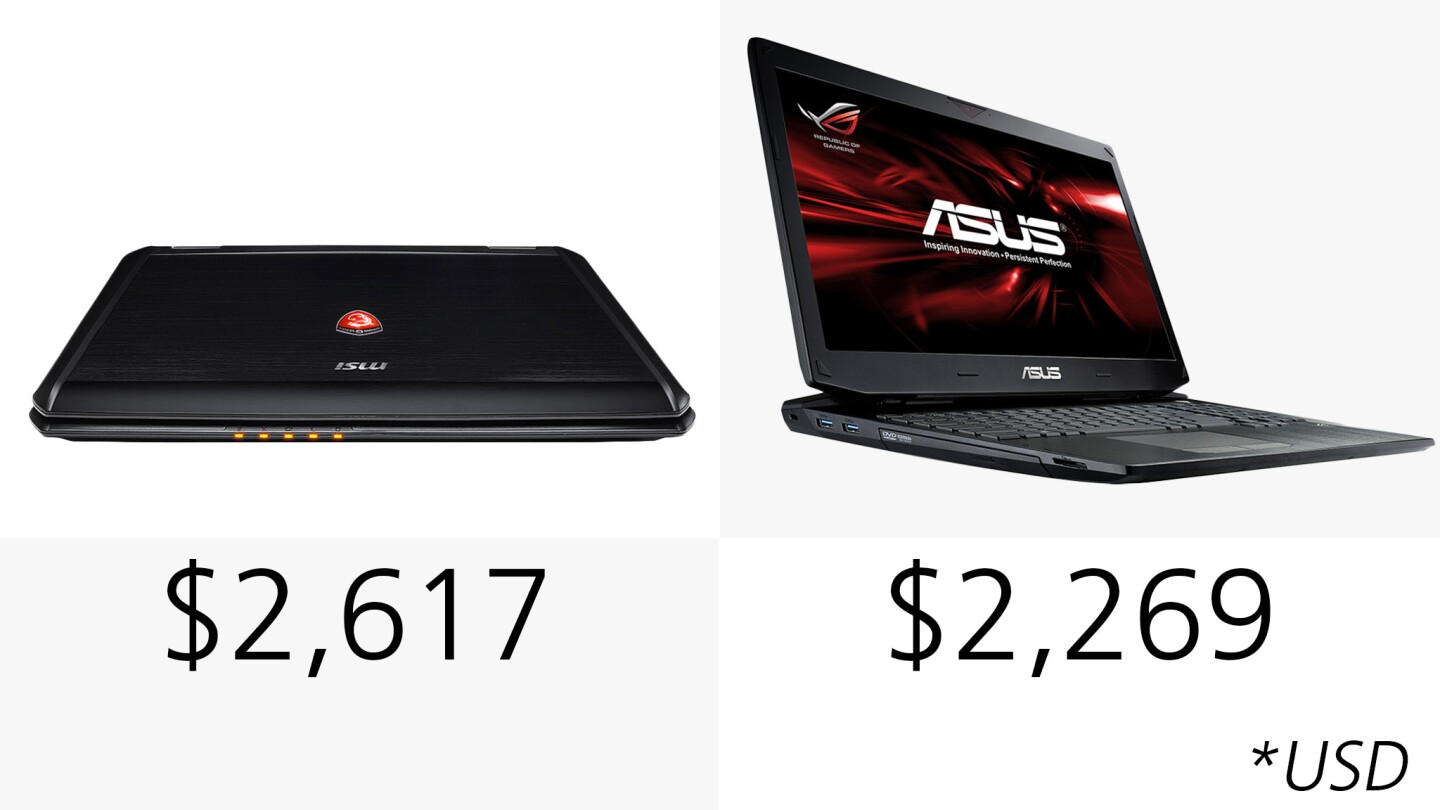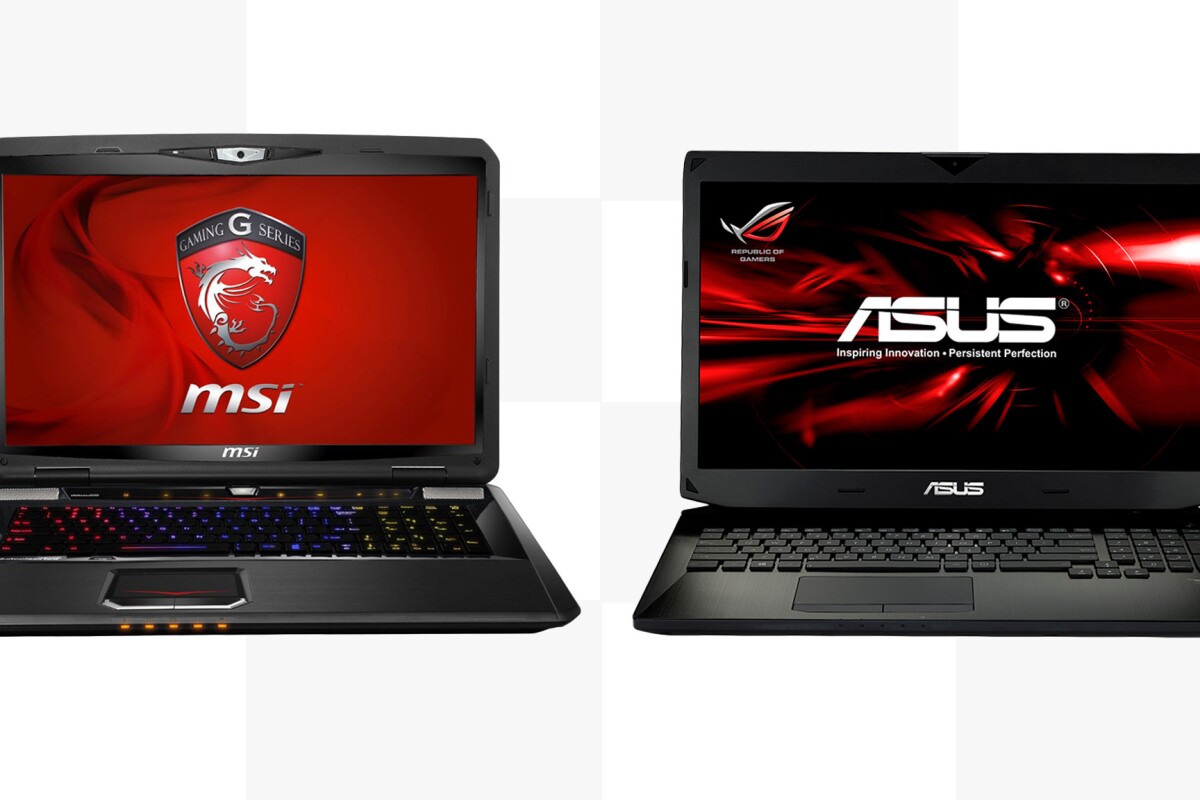Both the MSI Dominator Pro-888 and the Asus ROG G750JZ are high-end gaming laptops, but they’re not quite created equally. While the Asus machine is clearly the looker of the two, the GT70 has a few tricks up its sleeve when it comes to internals. Read on as Gizmag compares these two high-end laptops.
Size

Being gaming machines, both systems have pretty significant footprints, but are similar in size.
Weight

There's a bigger difference when it comes to weight, with the Asus laptop being the significantly heftier option.
Build

Both systems are made from plastic, but the Asus laptop uses a decidedly more out-there design language – with the back of its base jutting out from behind its angular monitor.
Display

Both systems have full HD 17.3-in displays. This is a pretty standard affair for gaming machines.
Touch screen

Since we're looking at modern Windows on both machines, you might be wondering if either PC has touch capabilities. Well, you can stop wondering: they don't.
Processor

This is where things really start to heat up. While both laptops are powered by Intel Core i7 CPUs, the MSI’s 4800MQ is the more powerful of the two. It’s worth noting that all Asus G750 laptops run on the 4700HQ, meaning there’s no way to get the more powerful i7 chip, even if you’re willing to lay down the extra cash.
Graphics

You’d be forgiven for thinking that the two systems are equal when it comes to graphics performance, with both housing Nvidia GeForce GTX 880M GPUs. However, the MSI’s card has double the VRAM of the Asus laptop, making it the superior choice.
RAM

The MSI machine offers more RAM in these configurations. It’s worth noting that it is possible to fit the Asus G750JZ with up to 32GB RAM.
Storage

Storage configurations tend to represent one of the more complex choices when picking out a high-end laptop. Here Asus has opted for a 256GB SSD combined with a slower 1TB HHD to up the storage space. While this is a fairly effective choice and should help keep the system running fast, MSI’s triple SDD configuration is certainly the better option, with its RAID 0 setup providing even faster access to your files.
Once again, it’s necessary to point out that the Asus machine supports a range of storage setups including RAID 0 options, but these tend to come at a significant price premium. More on this later.
Ports

While the MSI laptop might provide a greater number of USBs, the Asus G750JZ has more of the faster USB 3.0 ports than the competition. Both systems feature a range of options for using external displays. Overall we’d have to give this category to the Asus machine due to its single Thunderbolt offering.
Disk Drive

Both systems can read Blu-rays, but the MSI laptop goes one better than the Asus, with the ability to burn disks.
Software

Both systems run Windows 8.1.
Price

In these configurations, the Asus machine comes in significantly cheaper than its rival. However, with a beefier processor, more graphics memory and RAM, and a better storage configuration, the extra US$350 seems like a reasonable deal.
That said, though the MSI machine appears to be the clear winner, there’s a little more to the story. The prices and configurations here represent the most easily available high-end configuration of both machines (from Amazon).
As we said earlier, the Asus offering is available with more (or less) RAM and with more premium storage configurations. However, its CPU is the same across all models and there's no option for the 8GB 880M graphics card. Given that the MSI machine wins out in both of those categories, it’s difficult to recommend the Asus G750JZ strictly from a spec analysis point of view.
But specs analyses don't always reflect perfectly in experience. Any MSI GT70 Dominator Pro or Asus G750JZ owners out there? How is your machine holding up as a gaming laptop? Drop us a line in the comments.

















![The Ti EDC [everyday carry] Wrench is currently on Kickstarter](https://assets.newatlas.com/dims4/default/0ba225b/2147483647/strip/true/crop/4240x2827+0+3/resize/720x480!/quality/90/?url=http%3A%2F%2Fnewatlas-brightspot.s3.amazonaws.com%2F59%2Fb2%2F6a6fdd0348a8bfdad88bbcefec53%2Fdsc03572.jpeg)